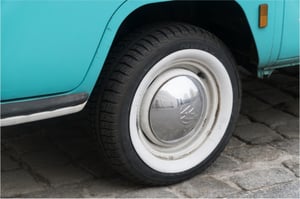Background
Deminor worked closely with a Hong Kong law firm which was seeking funding for an HKIAC arbitration, with Hong Kong law applicable, arising out of an M&A transaction. The firm’s client had purchased a local company from an individual and had discovered a significant undisclosed debt in breach of the representations and warranties set out in the share purchase agreement.
The due diligence process
The law firm contacted Deminor with a funding request in the region of HKD 2.5 millions. Before receiving the case materials, Deminor and the law firm entered into a non-disclosure agreement to maintain confidentiality in the review.
A few days after that, a call was organized between the law firm and Deminor to briefly discuss the case in order to establish that the case has strong merits. On the basis that the case did indeed look to be strong, Deminor carried out the first phase of the due diligence process (the ‘smell test’). During this phase of the process, Deminor focused on reviewing facts and identified red flags around legal and enforcement issues. This phase took 2 weeks for this case.
Once the first stage of the due diligence is completed, the case is submitted for consideration by the Review Committee. The Committee meets once a week to assess pending cases and is composed of Deminor’s Chief Investment Officer (CIO), CFO and senior lawyers from various backgrounds and jurisdictions. The Review Committee approved the case to move to a second stage due diligence.
A conditional non-binding indicative offer (NBIO) setting out the proposed commercial terms for the funding of the case was issued. The offer was conditional on satisfying two conditions:
- resolution of the legal and enforcement red flags;
- asset tracing of the defendant to identify assets that could be used to secure enforcement of an award in the event of success of the arbitration.
During this second phase, Deminor reviewed the law firm’s memorandum around the red flags. Deminor also appointed a firm specialized in asset tracing – at its own cost in order- to identify the defendant’s sufficient assets and to assess the availability of those assets to be used as security in enforcing the arbitral award. This phase took a further 2 weeks.
At the end of this second phase, the client, law firm and Deminor discussed the case together and came to the conclusion that the case presented too many risks to move forward and file the claim.
Deminor’s commitment
This case study demonstrates Deminor’s commitment during due diligence to:
- use our in-house team of experienced lawyers to review your case;
- use our streamlined review process to support our clients in managing the costs of seeking funding;
- take appropriate risks and might invest money in cases (in this case for asset tracing) at an early stage without any confirmation that the case will be funded at the end;
- quickly issue a NBIO to provide an early indication of the commercial financial terms for the funding. You do not have to wait until the end of the due diligence process to discuss the financials.
What Deminor needs from clients and law firm to support this efficient process:
- Transparency – we need to know all of the facts, good and bad.
- Effectiveness – providing / discussing legal opinions that have already been prepared and focussing on the key information Deminor needs will lead to a smooth and quick process.





